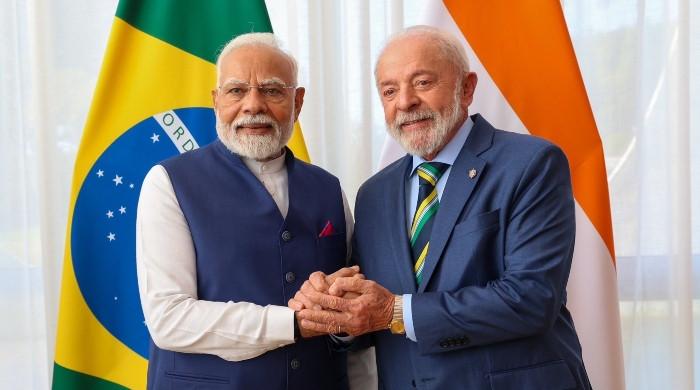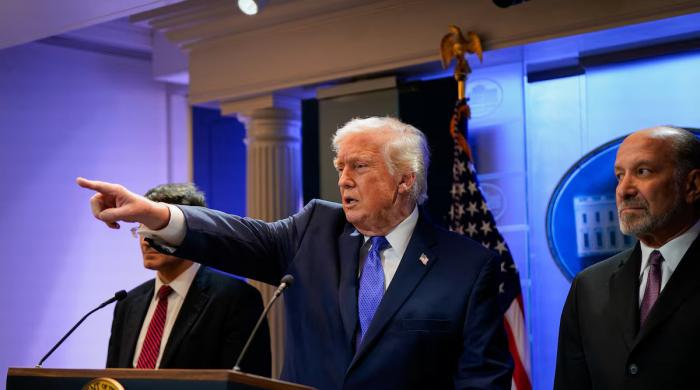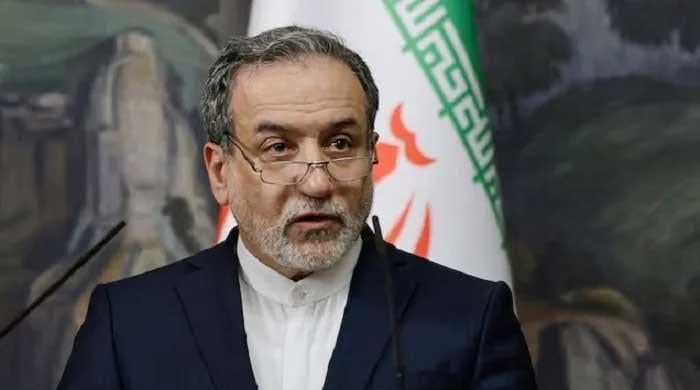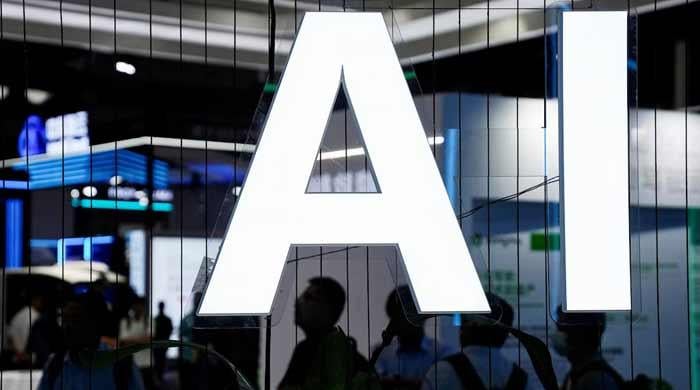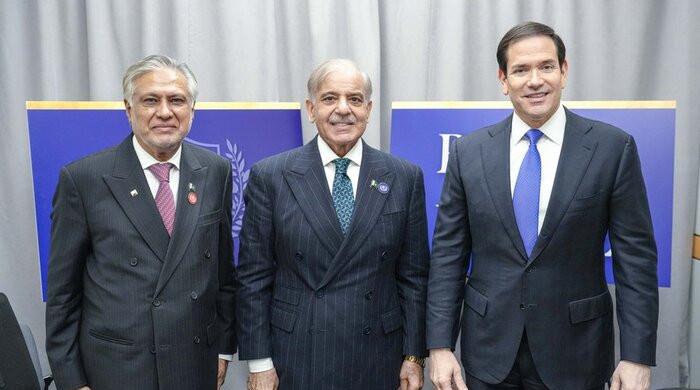Chemical attacks jolt world out of apathy towards Syrian crisis
The appeal by UNHCR and UNDP pledged $5.6 billion in 2017 to be spent on humanitarian, resilience, and development activities in Syria under various organisations
April 09, 2017
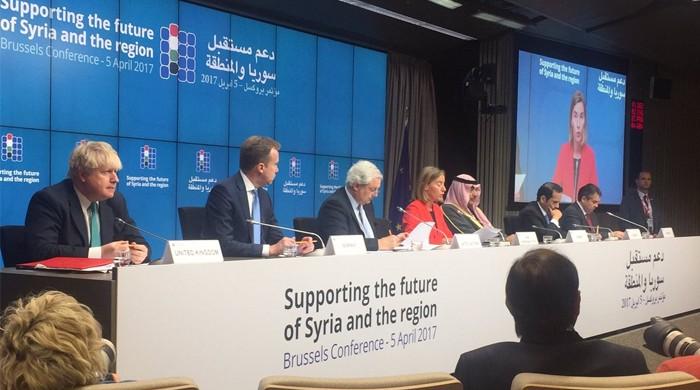
BRUSSELS: The recent chemical attacks on the Northern Syrian town of Idlib seem to have helped the United Nations (UN), leading the High Commission for Refugees (UNHCR) and United Nations Development Program (UNDP) to issue a desperate appeal a day before the Brussels conference.
The appeal pledged $5.6 billion in 2017 to be spent on humanitarian, resilience, and development activities under the Syria Humanitarian Response Plan, Regional Refugee & Resilience Plan (3RP), and the Syria Crisis Appeal by Red Cross.
The European Bank for Reconstruction and Development (EBRD), European Investment Bank (EIB), Islamic Development Bank (IDB), and World Bank confirmed an additional funding of $3.5 billion for 2018-20 besides loans worth $27.9 billion, as well as bilateral donor loan finance.
The United Kingdom, Kuwait, Norway, Germany, Canada, Japan, the United Nations, and the European Commission (EC) included the largest donors in earlier conferences held in Kuwait (2013, 2014, and 2015) and London (2016).
Documents issued by the UN indicate that in 2015, nearly 6 million and 4.4 million people received monthly food assistance and other assistance and shelter support, respectively. Over 9 million received medical care, and more than 5 million children benefited from educational support in a humanitarian crisis that led to 250,000 deaths, 1.2 million people being injured, and 6.5 million internally displaced.
In addition, the crisis forced 5 million people to live in besieged cities and another 5 million to flee as refugees – primarily to Turkey, Lebanon, Jordan, and Egypt – while approximately 13.5 million currently stay vulnerable in Syria.
An amount worth $1.5 billion was raised in 2013, while $2.4 billion and $3.8 billion were raised in 2014 and 2015, respectively. The 2016 London conference – co-hosted by the UK, Germany, Kuwait, and the United Nations – had raised $6 billion for 2016 and $6.1 billion for 2017-20, with an announcement of $40 billion in concessional loans from multilateral development banks (MDBs) and donors.
Kuwait had pledged $500 million in the same conference, a year before. The UK, Germany, and Norway spent £1.1 billion, over $1.3 billion, and $176 million in 2015, besides providing support to “transport chemical weapons out of Syria for destruction, in accordance with the UN Security Council resolution 2118 and decision by the Organization for Prohibition of Chemical Weapons [OPCW].”
The 2015 conference called for “political solution based on UN Security Council resolution 2254 (2015) and Geneva Communique (2012), which demands a transitional government body representing legitimate aspirations of the Syrian people.”
However, according to an official press release from the UNHCR and UNDP issued on April 4 this year, the 3RP faces serious funding crisis due to the non-delivery of funds in the conferences. It was issued as an appeal on behalf of the 240 international and national partners and host governments in the region.
“[We are] extremely concerned by the current low funding levels of the response,” the press release lamented, adding that “as the world prepares to meet in Brussels, only a fraction of the funds needed to assist Syrians has been received.”
“The primary regional appeal and strategy – the Regional Refugee and Resilience Plan (3RP) for 2017 – calls for $4.63 billion to continue delivering vital protection and assistance for refugees and host communities. To date, only $433 million of the amount requested has been received, just 9% of what is needed,” says the release, warning that “all areas of assistance will be curtailed this year,” if no additional funding comes in.
“Food and cash assistance will be reduced or cut by mid-year, challenging stability and security in the region,” the statement explained.
Furthermore, UNHCR's Filippo Grandi stated, “The situation is getting desperate. We are already seeing children who are not able to go to school, families who cannot access adequate shelter or provide for their basic needs.”
In addition, UNDP administrator Helen Clark expressed, “We recognise and applaud the donations made so far, but the simple truth is that funding is not keeping up with needs.”
Before the chemical attacks, however, EU’s foreign ministers on April 3 had declared in the Luxembourg meeting that “Syrian regime has failed to meet its primary responsibility for the protection of the Syrian population, action must be taken.”
After Brussels conference, EU High Representative Federica Mogherini outlined three components of the strategy as military action against Daesh, military effort to bring a ceasefire, and humanitarian and political work.





